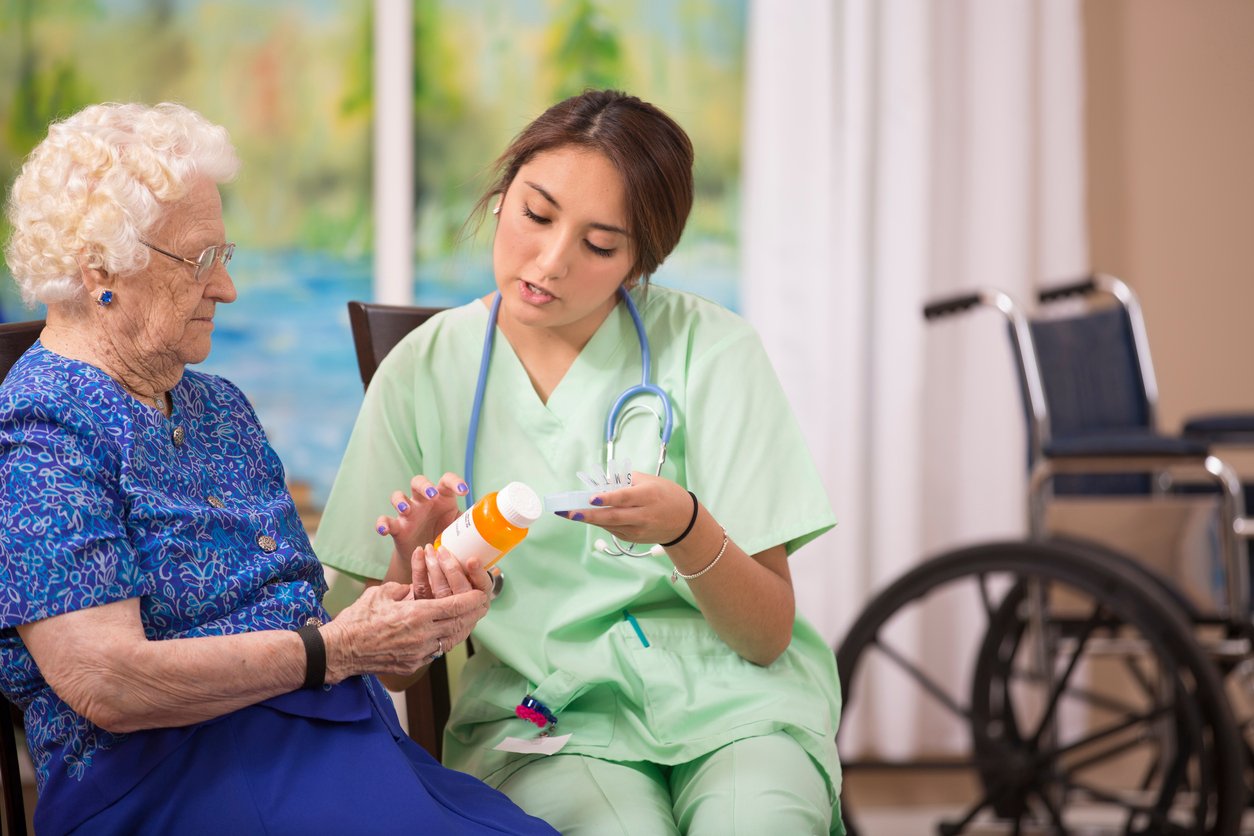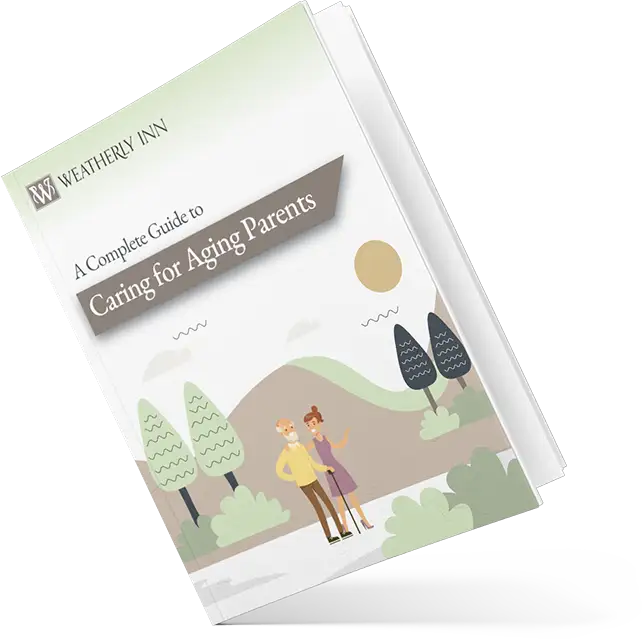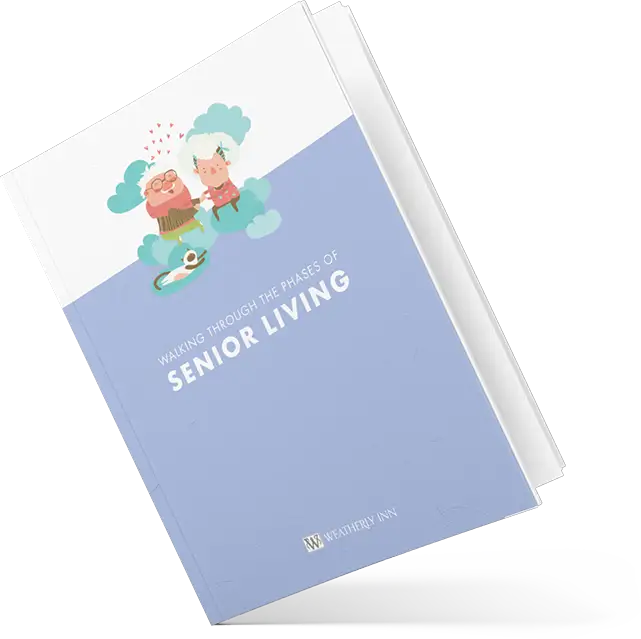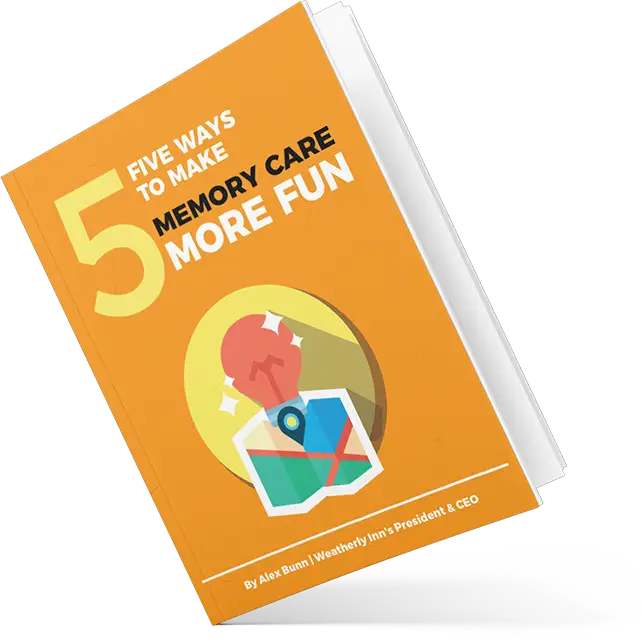December 12, 2019
At Weatherly Inn, we know a Parkinson’s Disease(PD) diagnosis can be frightening for families. Your primary concern is caring for your loved one, so we’ve put together a beginner’s guide to Parkinson’s for new caregivers. Our goal is to reduce your worries and hopefully leave you feeling less overwhelmed by providing some caregiving tips. With this blog, we’ll discuss PD, treatments, and medicines, as well as offer you some guidance to help care for your family member.
What Is Parkinson’s Disease?
We’re still learning about Parkinson’s. We don’t know the exact cause of PD yet, but some forms seem to be inherited. Early Onset Parkinson’s, which is often diagnosed before age 50, is probably hereditary.
Here’s what we DO know:
Scientifically speaking, “PD is a neurodegenerative disorder that affects predominately dopamine-producing neurons in a specific area of the brain called substantia nigra.” per the Parkinson’s Foundation.
- PD affects a part of the mid-brain, the portion which controls dopamine.
- Dopamine is a chemical in the brain which helps transmit messages from one portion of the brain to the next.
- It can potentially affect movement, memory, and physical responses (like salivating when we smell good food).
Parkinson’s can affect your loved one’s ability to perform daily activities like eating and bathing. Unfortunately, it is a chronic and progressive disease. The symptoms worsen over time. It manifests as motor symptoms—tremors (rhythmic shaking), stiffness, and slowness of movement. Check with their healthcare provider to see if they are covered to see a neurologist when medical conditions like PD begin.
It can also create difficulty walking, known as Parkinson’s Gait. You may notice your loved one leaning, taking smaller or shuffling steps, and having trouble walking a straight line.
Other symptoms include sleep problems, anxiety, depression, fatigue, and constipation.
Parkinson’s Disease Treatments
While it cannot be completely cured, the good news is that PD can be slowed dramatically with medication!
According to Healthline Magazine:
- Levodopa is a chemical that’s converted to dopamine. Note that individuals with early-onset PD have been known to experience adverse side effects, such as involuntary movements.
- MAO-B inhibitors can reduce the breakdown of dopamine.
- Catechol-O-methyltransferase inhibitors can help extend Levodopa’s effects on the brain.
- Anticholinergics reduce tremors.
- Amantadine may improve muscle control and ease stiffness.
Caring for Your Loved One: Nutrition, Senior-proofing, and Patience
Now that you know what’s going on from a medical standpoint, let’s talk about the hands-on care. As PD progresses, you’ll probably notice a decline in your loved one’s ability to care for him or herself. As a Parkinson’s Caregiver or family member, it’s essential that we still treat them like adults, and everyone will be happier if we avoid the most embarrassing situations.
Excellent Nutrition Is Essential
Shaking hands (tremors) makes it challenging to prepare food, eat, dress, apply cosmetics, or style hair. Remind your family member to eat several times a day and provide snacks that are simple to eat without causing spills and embarrassment. Avoid offering coffee or tea that is too hot or serving hot soups that require careful use of a spoon to eat.
Remember, your family member is an adult. They’re probably hard-working individuals who led an interesting life before the diagnosis. Parkinson’s patients are very much “with it” mentally and emotionally. Their struggles are physical and can make them feel very embarrassed.
If your loved one wears dentures or has other oral issues, avoid foods that are too hard to eat, like whole apples or corn on the cob. Ideal snacks are semi-soft and won’t make a huge mess on their clothing if dropped, such as:
- bananas
- cheeses
- tofu
- avocado
- thin apple slices
Pick a Senior-Friendly Wardrobe
Help your senior to “help themselves” by keeping comfortable, easy to wear clothing around the house. Select elastic waistbands over pants that zip or have buttons, and offer pull-over tops for daily living. Remember that your family member looks forward to special outings as much as the rest of us, so budget extra time to dress for a special day out.
Focus on footwear. Allow your loved one to wear shoes in your home for protection and stability. If your family member prefers slippers, make sure they have non-slip bottoms.
“Senior-proof” Their Living Space
- Provide plenty of lighting and adding nightlights in bathrooms
- Remove area rugs, power cords or other items which may cause a trip and fall
- Store dangerous medications on top of the fridge or in a cabinet, not on counters or tabletops
- Offer plastic cups with lids, rather than glasses to drink
- Raise toilet seats and install railings
Housekeeping
As Parkinson’s progresses, your family member will find it more challenging to perform household chores. Parkinson’s Gait makes vacuuming, sweeping, and mopping difficult. Tremors turn washing dishes and folding laundry into daily struggles.
Whether you choose to take on your parent’s housekeeping chores yourself, or hire a trusted cleaning service, know that you’ll need to decide at some point. Talk to friends and family members to get referrals for housekeepers they trust. Don’t just hire someone from an internet ad!
This is the point when many caregivers decide that maintaining two separate households is overwhelming, and decide to figure out new living arrangements.
Ultimately, the choice to care for your loved one at home is entirely up to you. It can be a challenge for families who live in a small home, for caregivers who work outside the house, and for members of “the sandwich generation” who are caring for elderly parents, adult children, and possibly grandchildren too.
When to Consider Professional Care for Your Family Member
We understand caring for a parent or grandparent with Parkinson’s Disease is no easy task! It can be a struggle to keep track of medications, help your loved one eat and bathe every day, keep up with the housework, and still get to work on time.
During the earliest stages of PD, your family member might be okay living alone, as long as they’re visited every day, and checked on periodically during each day by phone. Eventually, you may decide to bring your family member home with you or consider an independent living program. Independent living is different than a “nursing home” or assisted living community. If they aren’t fully prepared to leave, providing part-time home care is a good option.
Seniors in independent living situations still maintain the freedom to come and go as they choose, make more decisions, and care for themselves. The staff handles chores like housework, laundry, and transportation to doctor appointments.
Assisted living communities are the next level of care. In addition to chores, the staff members are more involved in providing medications on time, helping with bathing and grooming, and providing more medical attention. Check out our blog to learn more about selecting the right community, and making the transition smooth for your loved one. These communities provide a level of emotional well-being through support groups because of the mental strain from the effects of Parkinson’s on mental health. While Parkinson’s involves movement disorders, the result of this hardship can often put severe pressure on one’s mental well being and quality of life.
Would you like to learn more about our independent living or assisted living communities? Get in touch with us today! We’d love to give you a tour and explain how we can help your family cope with Parkinson’s Disease.




